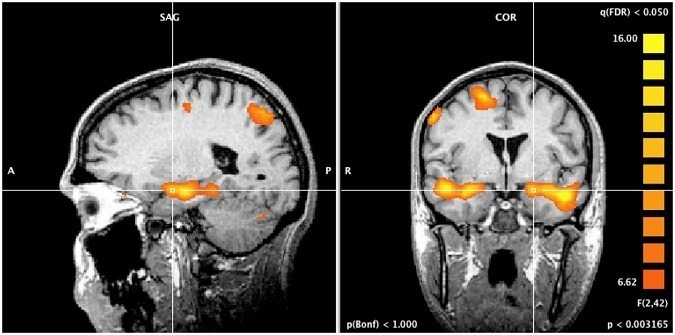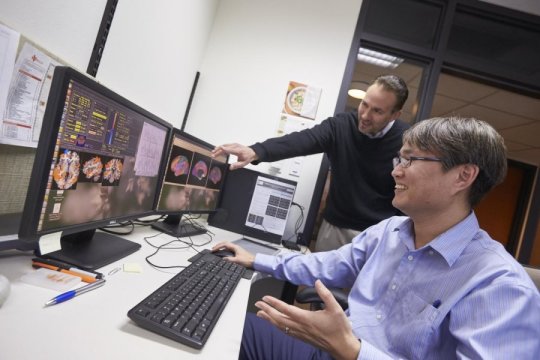Posts Tagged ‘brain connectivity’
Study: Cognitive Behavioral Therapy (CBT), not medication, drives long-term rewiring of the brain to help reduce psychosis symptoms
Talking therapy changes the brain’s wiring, study reveals for first time (ScienceDaily): “A new study from King’s College London and South London and Maudsley NHS Foundation Trust has shown for the first time that cognitive behaviour therapy (CBT) strengthens specific connections in the brains of people with psychosis, and that these stronger connections are associated…
Read MoreStudy: Disruptions in brain connectivity may explain TBI-related cognitive deficits
Brain connectivity disruptions may explain cognitive deficits in people with brain injury (UT-Dallas release): “Cognitive impairment following a traumatic brain injury (TBI) is common, often adversely affecting quality of life for those 1.7 million Americans who experience a TBI each year. Researchers at
Read MoreFast cycling can help Parkinson’s Disease patients strengthen brain connectivity for motor ability
Exercise Rate Related to Improvements in Parkinson’s Disease (RSNA release): “People with Parkinson’s disease benefit from exercise programs on stationary bicycles, with the greatest effect for those who pedal faster, according to a study presented today at the annual meeting of the Radiological Society of North America (RSNA). Functional connectivity magnetic resonance imaging (fcMRI) data…
Read MoreUpdate: From “Does Brain Training Work?” To How, When, for Whom It Can Work
Time for SharpBrains’ June 2012 eNewsletter, featuring in this occasion several articles which, paraphrasing hockey player Wayne Gretzky, reinforce the need for everyone with a brain to “skate to where the (brain health) puck is going to be, not where it has been.” Featured Perspectives Why Being Young for Grade Increases Odds of ADHD Diagnosis and Stimulant Medication,…
Read More


